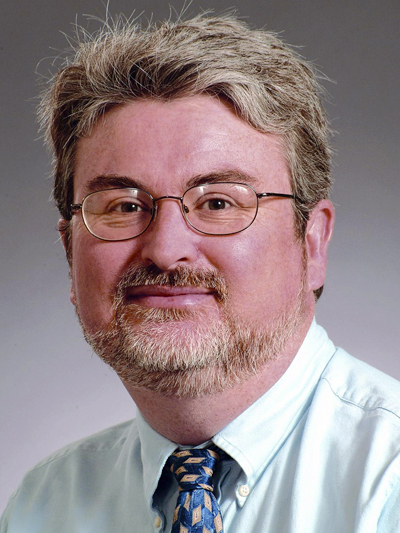Simon Phillpot, Ph.D.
Professor of Materials Science and Engineering
College of Engineering
2010 Awardee
 Simon Phillpot uses state of the art computational tools to address some of the most important current problems in materials science and engineering. His work includes the development of new methodologies for the simulation of multifunctional materials structures (highlighted in Science in September 2009), the simulation of heat transfer through materials by the mechanism of atomic vibrations, the characterization of the dielectric and ferroelectric properties of complex oxides, friction and wear in materials, and the coupling of radiation damage and mechanical behavior in the nuclear fuels and cladding.
Simon Phillpot uses state of the art computational tools to address some of the most important current problems in materials science and engineering. His work includes the development of new methodologies for the simulation of multifunctional materials structures (highlighted in Science in September 2009), the simulation of heat transfer through materials by the mechanism of atomic vibrations, the characterization of the dielectric and ferroelectric properties of complex oxides, friction and wear in materials, and the coupling of radiation damage and mechanical behavior in the nuclear fuels and cladding. The approach that Phillpot’s group takes is to simulate the structure and properties of materials both at the level of the atoms and at the level of the electronic structure of individual atoms. When coupled judiciously, these two approaches allow a wide range of materials structures to be simulated, from optical systems containing electrically active wall structures to microelectronic devices, tribological surfaces, and fine grained polycrystalline materials.
The variety of backgrounds of members of Phillpot’s group (including physics, materials science and chemical engineering) and the extensive collaborations with other leading groups in national labs, universities, and overseas institutions enables each problem to be tackled from a number of different directions. Phillpot’s group is currently funded by the NSF, the Offices of Basic Energy Sciences and Nuclear Energy in the Department of Energy, the Office of Naval Research, and the Defense Advanced Research Projects Agency.
One area of particularly timely activity is the heat-transport properties of nuclear fuel systems. A detailed understanding of and, ultimately control of, the thermal-transport properties is required for the development of uranium-dioxide based fuels which can stay in the reactor longer, thereby producing more power and less waste, and for the development of innovative fuel systems that will be required in future generation reactor systems.

